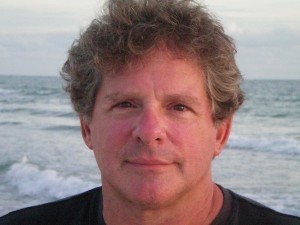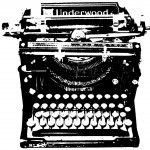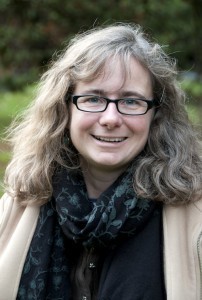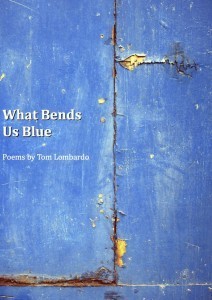Midge Raymond's Blog, page 27
September 23, 2013
Weekly Writing: Bad lighting
September 17, 2013
Mini Q&A with author Wendy Call
This is an excerpt of author Wendy Call’s Q&A in Everyday Book Marketing, in which she talks about creating a budget, doing a book tour, and how to put yourself out there as an author. For more book promo information, and to read Wendy’s complete Q&A, check out Everyday Book Marketing.
Wendy Call is a writer, editor, translator, and teacher of creative writing. Her narrative nonfiction book, No Word for Welcome, won Grub Street’s 2011 National Book Prize for Nonfiction and the 2012 International Book Award for Best History/Political Book. She is co-editor, with Mark Kramer, of Telling True Stories, and her nonfiction, translations (from Spanish) of poetry and fiction, and photography have appeared in more than fifty magazines and literary journals.
Q: Tell us about how your book came into the world.
A: My book began as a series of twenty essays and narrative nonfiction pieces that I wrote while living and working in southern Mexico. I had received a two-year fellowship from the Institute of Current World Affairs, and they published my writing. I returned to the U.S. in the summer of 2002 and began to put together a book proposal, to seek an agent, and to learn the deep difference between a collection of five-thousand-word narratives and a single ninety-thousand-word book—as well as the difference between writing a book and publishing a book.
On the publishing side: I approached nearly fifty agents before I found two—in the same month, after nearly five years of sending queries—who were interested in representing my book. I chose the agent who had more experience selling narrative nonfiction. She circulated the proposal (and later, the full manuscript) for about a year, and was on the verge of giving up when the University of Nebraska Press tentatively offered me a contract. The contract, contingent on a significant revision, included no advance. Because of the peer review process (common at university presses), a year elapsed between my agent sending UNP the proposal and the press sending me a contract.
Q: What aspect of book promotion surprised you the most?
A: As naïve as it sounds, the sheer quantity of work shocked me. I began working on promotion part-time six months before my publication date, and full-time about three months in advance, and that was not soon enough. Other than my hometown Elliott Bay Book Company, the first six bookstores I approached turned me down. Even those “No, thanks…” replies came only after many, many hours of figuring out whom to contact, crafting personal query letters, sending review copies, seeking a local co-sponsor, answering detailed questions, or trying (over and over) to get the right person on the phone.
Q: What advice do you have to offer new authors?
A: This is no time to be shy. Nor humble. Put yourself out there; push yourself a bit past your comfort zone. When this seems impossible, ask an extroverted friend to coach you. (I have a quote from Sandra Cisneros—who is deeply generous as well as brilliant—on the cover of No Word for Welcome only because a fearless friend talked me through composing the e-mail to her and then pressing “send.”)
Make sure to let everyone you have ever met, and have an e-mail address for, know about your new book. I found that I couldn’t predict with any accuracy which friends and colleagues would be interested in No Word for Welcome and happy to lend a hand in its promotion.
Devote as much time and money as you can possibly afford— but only what you can afford—to promotion. Set priorities, but try a variety of strategies. For example, I devoted $500 of my budget to submitting my book for awards. My publisher offered book copies for six award submissions. I wanted to submit to a dozen different awards, so I bought the book copies for the other six awards, and I paid all the submission fees. It seemed like a strange way to spend five hundred bucks, but it was worth it. I won two awards, bringing a bit of renewed media attention to No Word for Welcome nearly a year after its publication date. (One award came with a $1,000 check, so you might say I doubled my investment.) Even if I’d not won either award, the submission process put my book in front of movers and shakers in the literary world.
To read Wendy’s complete Q&A, check out Everyday Book Marketing. And click here to visit Wendy online.
Tweet
September 16, 2013
Weekly Writing: The old days
Write about a device that is now basically obsolete (a pay phone, a Walkman, an answering machine) that you once used regularly. What do you use instead? How has the extinction of this device changed your life, if at all. How old does doing this prompt make you feel? (That last part is a joke…sort of. I’m feeling old just writing this, thinking of all the things I once used that the next generation’s never heard of.)
Tweet
September 12, 2013
Mini Q&A with author Jackie Bouchard
This is an excerpt of Jackie Bouchard’s Q&A in Everyday Book Marketing, in which she talks about e-book publishing and promotion. For more book promo information, and to read Jackie’s complete Q&A, check out Everyday Book Marketing.
Jackie Bouchard is the author of What the Dog Ate, first published as an e-book and later in paperback, and the forthcoming novel Rescue Me, Maybe. Jackie has lived in Bermuda, Canada, and the east coast of the U.S. and now lives in San Diego with her husband and her rescue pup, Rita. Her work has been published in San Diego CityBeat and the San Diego Writers Ink anthology, A Year in Ink, Vol. 3. Visit her online at www.jackiebouchard.com.
Q: What made you decide to publish in e-book format?
A: Way back in the spring of 2008 when my manuscript was “finished” (I say that in quotes because I was too much of a writing/publishing virgin at the time to realize how much work it still needed), I sent it off to an agent I really liked whom I’d met at a writing conference the previous year. I’d read a key scene in a session she led, and she’d invited me to submit it to her when it was done. She rejected it, but sent me some great suggestions. So I worked hard, sent it back to her in the fall of 2008, and she signed me! Oh, what exciting times … and then, the market crashed. By the time we finished putting the final tweaks on the manuscript, we were pitching it in early 2009. Not great timing in any industry, let alone publishing. Even though I got good rejections, they were still rejections. I tried to put the book out of my head and get on with the next one. Then, in January of 2012, I had dinner with my agent, and she encouraged me to self-publish it. Another author she represented had self-published his first book, so with his guidance I was on my way to formatting and self-publishing my first e-book.
Q: What aspect of book promotion has surprised you the most?
A: The aspect that surprised me the most is that it really can be as simple as making new connections. I’m not a good salesperson, especially when it comes to selling myself. I thought I would really hate this whole marketing/promo part of the writing “biz.” Sometimes I do start to get down about the business side of writing, but then I remember to just try to get out there and connect with people—other writers, other book lovers, and other dog lovers. If I approach it with that mindset, it makes me feel that it’s something I can accomplish, and actually enjoy doing.
To read Jackie’s complete Q&A, check out Everyday Book Marketing. Click here to visit Jackie’s website…and check out her new novel, Rescue Me, Maybe, which launches on Monday, September 16!
Tweet
September 9, 2013
Weekly Writing: Daily rituals
Write about a daily routine. Next, write about a day on which you skip your usual routine. How did this affect the rest of your day?
Tweet
September 6, 2013
Win a copy of EVERYDAY BOOK MARKETING!
Authors: If you don’t already have a copy of Everyday Book Marketing, win a copy from this Goodreads giveaway!
Goodreads Book Giveaway

Everyday Book Marketing
by Midge Raymond
Giveaway ends September 25, 2013.
See the giveaway details
at Goodreads.
Tweet
September 5, 2013
Q&A with author Tom Lombardo
Today I’m very happy to post my Q&A with Tom Lombardo, a poet, essayist, and freelance medical writer who lives in Midtown Atlanta. Tom’s poems have appeared in journals in the U.S., the U.K., Canada, and India (translated to Hindi and Mayalayam), including Southern Poetry Review, Ambit, Subtropics, Hampden-Sydney Poetry Review, Aethlon: The Journal of Sports Literature, Atlanta Review, New York Quarterly, and many others. He is also editor of the anthology After Shocks: The Poetry of Recovery for Life Shattering Events, and he runs the Poetry of Recovery blog.
Tom’s new book, What Bends Us Blue, has been praised as “remarkable” (Thomas Lux) and “exquisite” (Cathy Smith Bowers). Clifford Garstang recently reviewed the book on his blog, calling it “a lovely collection of poems…both sad and hopeful…and there’s also a great deal of humor.”
Q: Congratulations on your new poetry collection, What Bends Us Blue, whose title I immediately fell in love with. Can you tell the story behind it?
A: Thank you, Midge. In music, especially in blues and jazz, notes may be bent upward or downward, on guitars or other stringed instruments or on harmonicas, saxophones, clarinets, and other reed instruments. It’s a way of taking the note up or down a half-step or more without changing the string or the holes. The musician will bend the string with a finger or bend the reed with the embouchure of the mouth and the speed of exhale or inhale. This technique was popularized by the Mississippi blues men of the early 20th century, so it is associated with blues, but it has crossed over into jazz and other genres. So…what bends us blue, literally, is bending a note to achieve a bluesy sound. What bends us blue, figuratively, is what What Bends Us Blue is about.
In 1992, at a table in a two-room flat in Prague, I wrote the first poem that became part of What Bends Us Blue. It was seven years after the death of my first wife, Lana, in a car accident. The poem was about her death, and some of it was in her voice. It was an awful poem, much worse than a rough draft, but that poem, scores of drafts later, entitled “Elegy on a Visitation,” has been published in a journal, is in What Bends Us Blue.
Over the next several years, I wrote a few more poems, some of them about Lana and her death and my recovery, some not. Then, a creative burst between 2001 and 2011 when I wrote hundreds of poems, many of which appear in What Bends Us Blue. The collection centers emotionally on loss and recovery, but it also looks at What Comes Next. As I was a young widower, the course of my life changed dramatically. It’s not unlike experiencing a divorce, I would imagine. You think you’re going in one direction, then Bam!, you’re not, and you’re lost for a while. When your life is shattered by an event, you come to a point like Robert Frost’s “The Road Not Taken.” You face a choice. A new direction. You can sit at that fork your entire life, or you can move on. That is a key theme of What Bends Us Blue, the moving on. Life wants to live. In my case, I remarried, had two children (who are now teenagers), and some poems of What Bends Us Blue give the reader a view of redemption.
Q: The collection has been praised for, among many things, the diversity of the poems — which range from satire to irony to heartbreak. What were the challenges of putting together a collection with such emotional breadth?
A: Let’s put aside for now the challenges of writing the poems themselves. Once I had the poems in hand, I built a collection. I had been submitting this manuscript for several years to contests and open submissions, and it was rejected over and over and over. Then, I turned to April Ossmann, former executive director and editor at Alice James Books, which awards the prestigious Beatrice Hawley Award each year to a book of poetry. April became my editor. The first thing she did was cut one-third of the poems I had included. Like most poets, I found it difficult arranging my poems into a coherent collection, even though I’ve been an editor for more than thirty years. But I’m smart enough to listen to a good editor. The poems April cut were good poems, had been published in good journals, but they were clotting the collection, disrupting the flow, distracting the reader. In this case, less was more. April also did some rearranging of the poems, creating an interesting arc that I had not considered. My arrangement was linear, telling a story from A to Z. Hers maintained the story arc but was somewhat less linear, becoming more impressionistic, which fed the emotions. And achieved better balance of heartbreak and humor and fantasy. The collection succeeds because of its humor and flights of fancy, which offer readers some relief from the sadness and grief, and the balance was the beauty of April’s arrangement. She found exactly the right pacing. What’s ironic is that I do this kind of editing in my work with other poets as a poetry series editor for Press 53 (Winston-Salem, NC). It’s difficult to do it with your own poems. But that’s what good editors do—step back, objectively view the collection, suggest cuts and new arrangements that make sense for the whole.
Q: Speaking of being the poetry series editor for Press 53, can you tell us about your process of acquiring new work. What makes a poem or selection of poems stand out among the rest?
A: I’m always looking for new poets for Press 53. Journals—paper or online—and submissions and recommendations from trusted sources. I will probably read 300 submissions each year, maybe more. We received more than 100 during our open submissions last year (we ask for a 10-poem sample), from which I selected two. I also solicit samples or full manuscripts from poets I read in journals or who have been recommended. In addition to selecting poets from Press 53’s home base in the Carolinas, I make a concerted effort to build Press 53’s poetry catalog across the U.S. I’ve selected poets from Portland, OR; the San Francisco Bay Area; Los Angeles;, Houston; Louisiana; Atlanta.
In my reading of submissions for Press 53, I reject a lot of poetry because it contains no figurations. It’s prose with line breaks, and it fails to elevate from prose. That’s an important lesson for all poets to understand. Poetry is essentially figurative language. Metaphor, synecdoche, metonymy, irony, synesthesia, imagery, intensity of senses are the keys to authentic poetry. So to answer your questions, submissions that use figurations stand out. Submissions without figurations—rejection.

Q: How does editing poetry affect your own writing?
A: I’ve been editing for a long, long time: newspapers, magazines, Internet. My career has been editing. Many of my professional skills transfer over to poetry editing, though the forms obviously are different. I feel like I was born to edit. My tombstone will read: I edit, therefore I am.
The most important thing I’ve learned as an editor that has transferred to my own writing is that I must write for an audience. A reader. What I write must be understood by someone else. Poetry is a form of communication. That is so fundamental that you would think it’s obvious. But I see too many manuscripts in which the poetry is written for the poet himself or herself, the reader ignored. Only the best poets and writers do it well, some of them may just do it naturally, a gift from the gods. Another important editorial skill: I fully understand and embrace the revision process. I write in order to revise. Good writing is the result of good revisions. Some poems of mine are published in their hundredth draft. To me, revisions are fun. I love to revise. Love it, love it, love it. The writing opens itself up to me as I revise. Being an editor, I’ve spent my life revising the work of others, so I truly enjoy revising my own work.
Q: What are you working on now?
A: I’m working on a novel. I’m about half finished. Soon, I’ll query agents and publishers.
I’m also producing frequent items for the Poetry of Recovery blog, which is an offshoot of an anthology I edited in 2007. After Shocks: The Poetry of Recovery for Life-Shattering Events comprised 152 poems by 115 poets from 15 nations. The poets wrote of recovery from grief, war, exile, divorce, abuse, bigotry, illness, injury, addiction. The Poetry of Recovery blog presents poems from the anthology along with an interview with the poet. I also feature new collections or readings by the After Shocks poets.
I’m putting the finishing touches on a chapbook due out next year from Kattywompus Press (Ohio) entitled The Name of This Game. It’s based on my experience playing football for eight years in high school and college, during which I experienced a number of concussions. The poems capture the violence of the sport and the damage it may cause to a young brain. The concussions fuzzed up mine through my early twenties, and I drifted a bit. My brain clarified in my mid-twenties, and I found direction to my life. Now, I’m waiting for dementia to kick in. The title of this short collection is from a quote from one of my coaches: “The name of this game is to hurt someone.” Indeed, coaches actually speak in luscious metaphor and simile. “Charge to this spot like a dog on a porkchop.” “Cover this guy like a cheap suit, like dirty shirt.” That coach got me a college scholarship as well as some great lines of poetry, so I can’t complain too much about football, though the injuries concern me enough that I encouraged my son’s early interest in tennis. He’s quite athletic, but he ain’t goin’ anywhere near a football.
I’ve also spent a lot of time lately arranging readings and workshops to promote What Bends Us Blue. The book’s Facebook page will list the specific details, places, and times of my readings. But note that I’ll be reading this fall in Atlanta on Sept. 11 and Sept. 12; in Charleston, SC, on Oct. 14; in Asheville, NC, on Nov. 3; and in Cary, NC, on Nov. 17. I’ll also be reading at the Press 53 offices at the Community Arts Café in Winston-Salem, NC, as soon as I can arrange that. I also have a radio interview scheduled for Oct. 28, 9 p.m. Eastern, on RN.FM. You can listen here: http://www.blogtalkradio.com/rnfmradio.
Keep an eye on Tom’s book’s Facebook page for more details and future events.
Tweet
September 4, 2013
Mini Q&A with events manager Susan McBeth
This is an excerpt of Susan McBeth’s Q&A in Everyday Book Marketing, in which she talks about how authors can connect with readers through nontraditional book events, and how authors can plan the perfect event to promote their books. For more book promo information, and to read Susan’s complete Q&A, check out Everyday Book Marketing.
Susan McBeth is the founder and owner of Adventures By the Book, which provides opportunities for readers to connect with authors through events and worldwide travels. She has worked as an event coordinator for more than twenty years, including as director of events and marketing at an independent bookstore, and has hosted events ranging from small, intimate gatherings for debut authors to large-scale events with high-profile and bestselling authors. Susan is also hosting the Southern California Author Academy, a monthly series of interactive workshops on book promotion for authors, beginning September 29, 2013, in San Diego.
Q: In what ways can nontraditional book events be good for sales and exposure?
A: Nontraditional book events are a fabulous way to increase sales and exposure for a variety of reasons. Keep in mind that the most successful events are those in which the author and the reader make a connection on some level. And when that magical connection occurs, you are more likely to generate increased book sales and exposure, as these readers will want to share with others the “experience” they just had.
Q: What are a few examples of non-bookstore events an author might try?
A: The best kind of nontraditional book event is one that is a good fit for an author’s particular book, keeping in mind that the primary goal is to make a connection with the reader.
For example, say you have written a lighthearted, fun piece of fiction. Since the best way to connect is to envision what it is you want your readers to feel or experience when they read your book, try to anticipate your demographic. In this case, your audience will likely consist of women who want to laugh and be entertained. A happy hour event would be a great fit, then, because it has the same goals in mind. And if you are not an experienced or naturally gifted speaker, sipping a glass of wine and sitting informally amongst a group of readers is much less intimidating and more natural than lecturing in a more formal setting, and allows you an opportunity to chat one-on-one with readers. And when readers share a glass of wine and some appetizers, they already start off an event having a good time and possessing a mindset that the fun will continue, so your connection has begun even before you start speaking.
For more advice from Susan, and to read Susan’s complete Q&A, check out Everyday Book Marketing.
Click here to visit Susan’s website.
To learn more about the Author Academy, click here. And for more details about this series of workshops, see this blog post by Susan on what’s to come.
Tweet
September 3, 2013
Q&A on Everyday Book Marketing with Erika Dreifus
I am absolutely delighted to be featured on Erika Dreifus’s website in this Q&A, in which we chat about Everyday Book Marketing, my own adventures in book promotion, and what new authors need to know about marketing.
Check out the Q&A here, and if you haven’t already subscribed to Erika’s newsletter, The Practicing Writer, click here for the current issue and to sign up — this resource is a must for all writers!
Tweet
September 2, 2013
Weekly Writing: Snacks
Write about your favorite snack. Be detailed not only about the food itself but why you’re drawn to it.
Tweet









